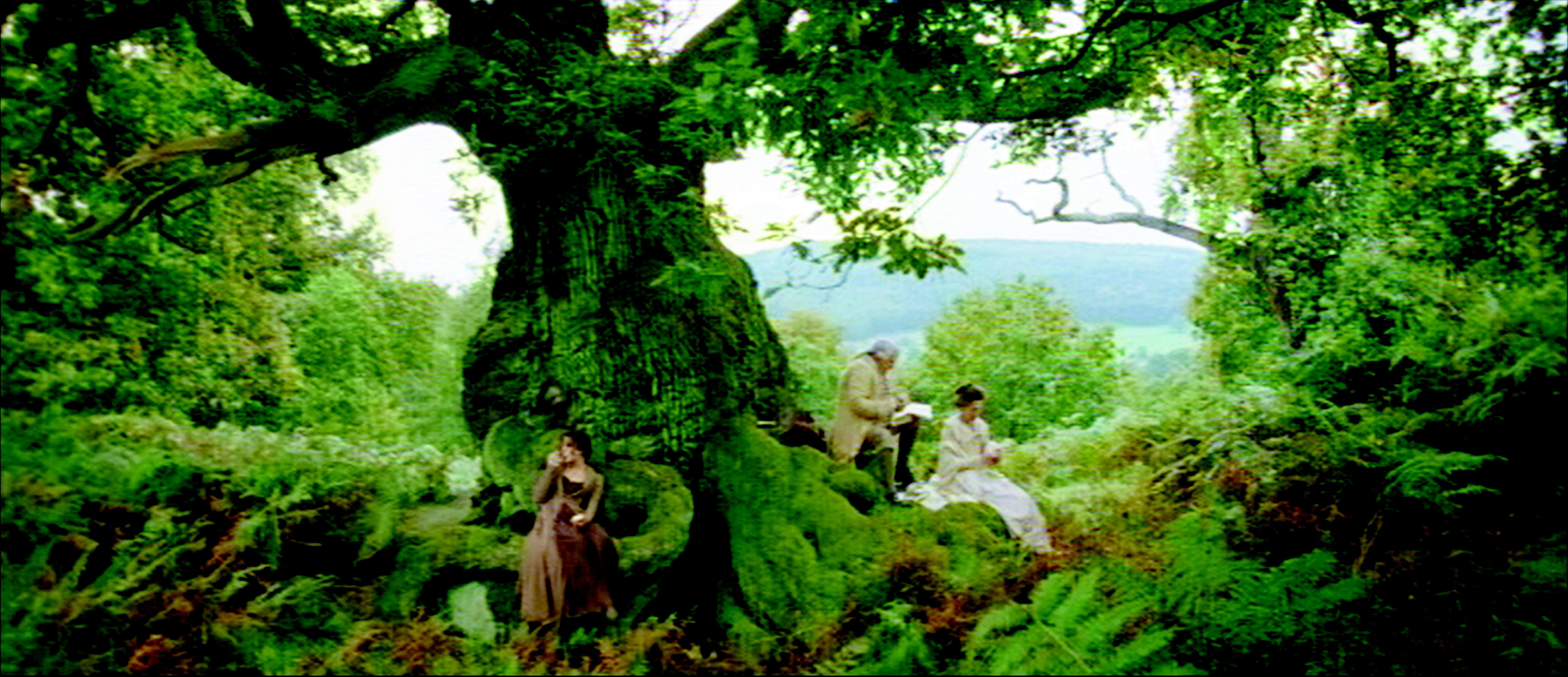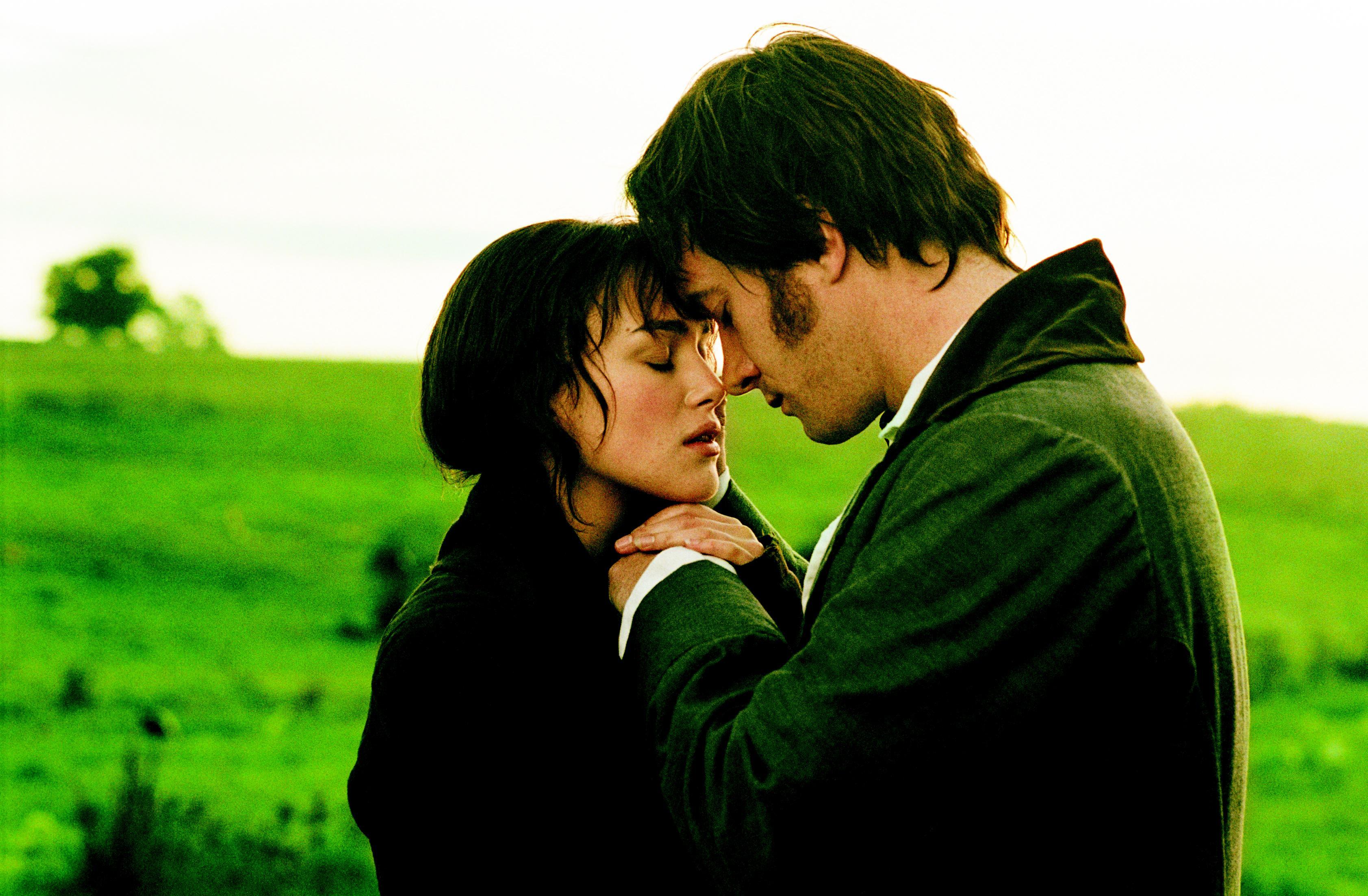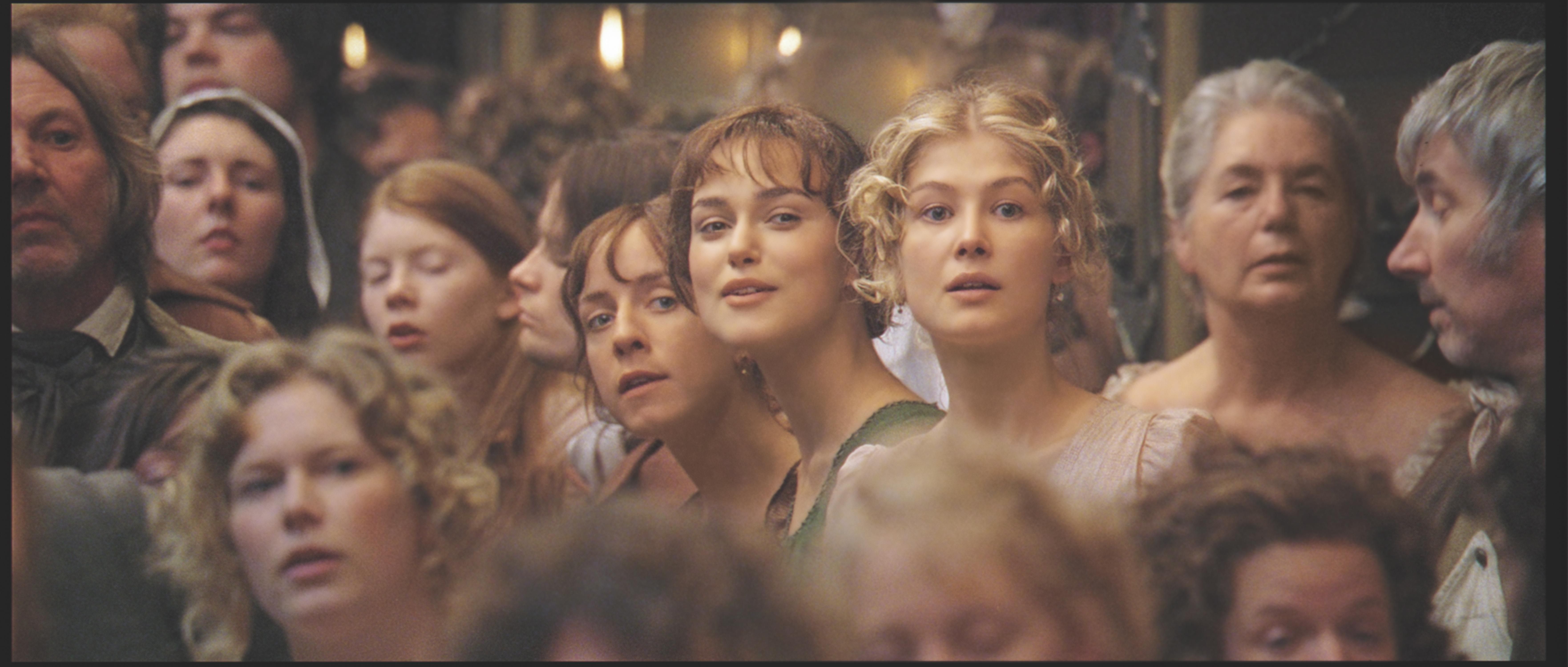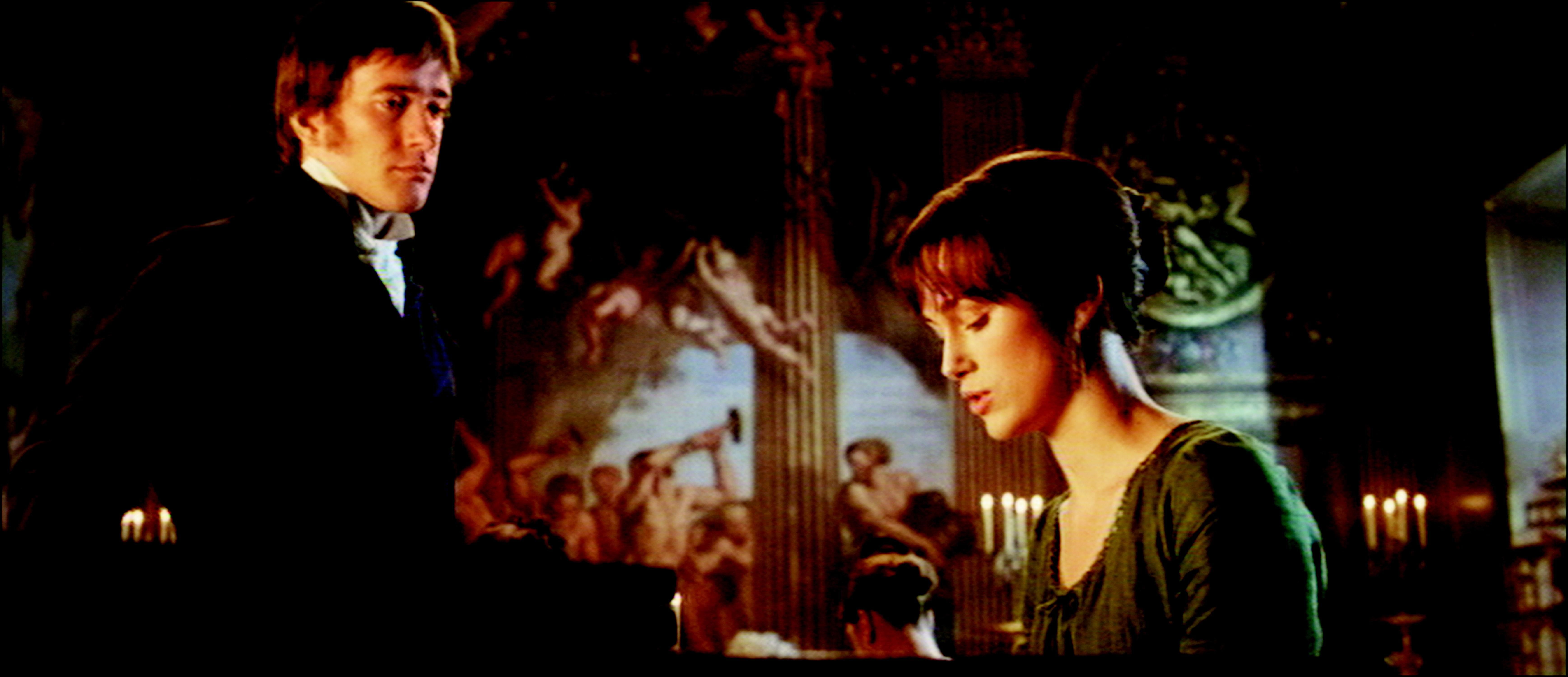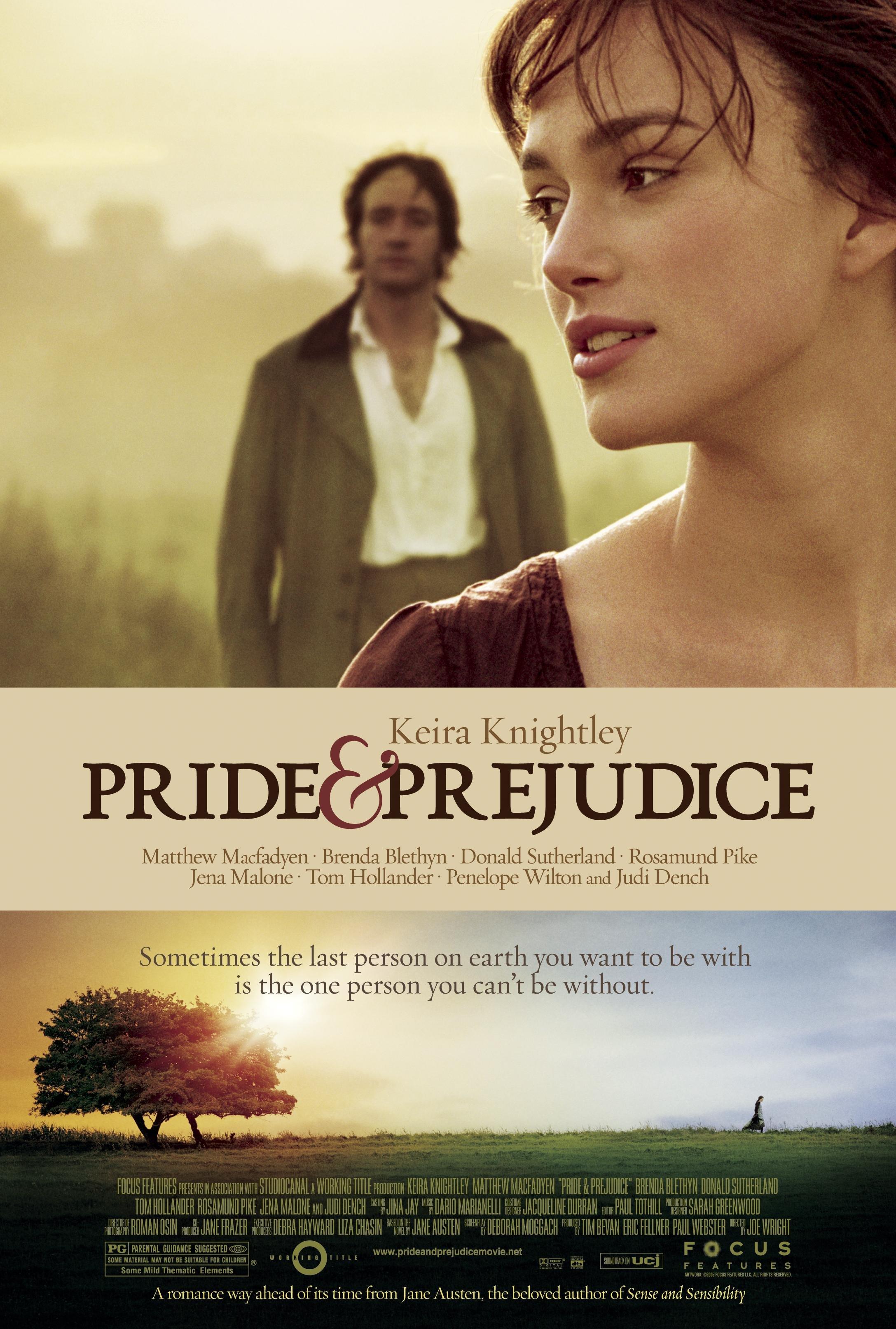Synopsis
Set in the idyllic English countryside around 1800, follows the Bennet family as they navigate the intricate social hierarchy of their time. At the heart of the story is Elizabeth, known as Lizzie, a sharp-witted and independent young woman who often finds herself at odds with societal expectations. Her mother, Mrs. Bennet, is comically fixated on marrying off her daughters to secure their financial future, while her father, Mr. Bennet, offers a contrasting air of lighthearted detachment.
When the charming and wealthy Charles Bingley moves into a nearby estate, he becomes the talk of the town. His close friend, the aloof and enigmatic Mr. Darcy, accompanies him, setting the stage for a series of encounters that challenge perceptions and prejudices. Lizzie is initially put off by Darcy's pride, especially after learning of his alleged transgressions from the dashing but duplicitous Wickham. However, as their paths cross repeatedly, Lizzie and Darcy’s initial aversions slowly give way to deeper understanding and respect.
Meanwhile, the pressure of suitable marriages looms across the Bennet household. Jane, the eldest and most reserved of the Bennet daughters, captures Mr. Bingley's attention. Their budding romance faces hurdles, orchestrated by Bingley's sister and, unbeknownst to Lizzie, influenced by Darcy's intervention. Meanwhile, the absurd and sycophantic Mr. Collins, a cousin set to inherit the Bennet estate, makes a less appealing suitor. His awkward proposal to Lizzie leads to tension, only to be diverted when her friend Charlotte accepts his offer, driven by her own fear of spinsterhood.
As the story unfolds, social visits reveal deeper character layers. A trip to the magnificent Pemberley Estate unexpectedly shifts Lizzie's perspective on Darcy. Witnessing his kindness and generosity, she begins to question her earlier judgments. This transformation intensifies when Mr. Darcy discreetly takes action to salvage the Bennet family's honor after a scandal involving Lydia, the youngest and most impulsive sister.
The film masterfully interweaves romantic tensions with themes of class and reputation. Lizzie's witty banter and unflinching honesty become catalysts for monumental change, both for herself and Darcy. As they navigate misunderstandings and revelations, each finds themselves evolving in ways they had not foreseen.
In the end, the movie elegantly ties together intricate relationships and social dynamics, leaving audiences captivated by its exploration of the human heart. With a dash of humor and a swirl of romance, is a timeless tale of love, growth, and the courage to overcome societal confines.
Argument
The timeless narrative of extends far beyond the surface-level musings of courtship and social maneuverings. At its core, the film delves into the complex interplay of societal expectations, exposure of individual prejudices, and the quest for authentic human connections during a transformative era in England around 1800. Focused on the Bennet family, a representative of the middle-class populace, the story navigates the intricacies of marrying financial security with romantic idealism.
At the heart of this family, the role of cannot be overstated—the matriarch is consumed by a fervent desire to secure advantageous marriages for her daughters. Her excitability serves as the catalyst that propels the narrative's momentum. In stark contrast stands , portrayed by Donald Sutherland, whose relaxed and somewhat detached demeanor allows him to find amusement in the tempestuousness surrounding him. Among their daughters, , played by Rosamund Pike, emerges as the oldest, imbued with thoughtfulness and a shy disposition, prompting audiences to sympathize with her quiet struggles.
brought to life by Kiera Knightly, is the film's vibrant axis. With her wit, wisdom, and fearless self-expression, Lizzie transcends the norms imposed upon her gender and era. The film's plot pivots upon her spirited debates, whether they be with the seemingly invulnerable or the disdainful , portrayed by Matthew Macfayden. Meanwhile, (Talulah Riley) disinterest in romantic pursuits paints her as an anomaly in Austen's world, dedicated instead to scholarly domains like reading and music.
The film's exploration of youthful capriciousness is further entrenched through and (Carey Mulligan and Jena Malone, respectively), whose frivolous pursuits reveal an intense contrast with Lizzie's maturity. The former's susceptibility to influence from the latter injects the storyline with both humor and impending peril.
The introduction of (Simon Woods) signifies a turning point, as his amiable yet affluent demeanor arouses familial excitement. However, it is who embodies the concept of both obstacle and enlightenment. The coveting of the Bennet estate due to the entailment encapsulates the economic undercurrents that dictate matrimonial pursuits, with representing the precariousness of their financial future.
From the moment Lizzie accidentally hears of Mr. Bingley's arrival at a neighboring estate, the plot's trajectory is set. Redemption, misunderstanding, and societal boundaries animate the scenes. The public ball offers a vivid tableau for initial character revelations. Darcy's dismissive remark about Lizzie augments their adversarial rapport, setting the stage for evolution through opposition. Jane and Charles's burgeoning attachment, juxtaposed with Caroline's classist disdain, illustrates the obstacles posed by social stratification.
The enforced illness ploy by Mrs. Bennet pushes Jane into Netherfield's insidious circle. Lizzie's impromptu visit to her sister in a disheveled state, far from quelling tensions, inflames them. Caroline's derision and Darcy's quiet observation highlight Lizzie's defiance of decorum, as she remains steadfast in her convictions, undeterred by aristocratic mockery.
Enter William Collins, whose conceit pervades his interactions. His proposal to Lizzie, reeking of pragmatism and patronization, lays bare the transactional nature of matrimony in their age. Lizzie's refusal is a declaration of independence, supported vehemently by Mr. Bennet in a richly comedic reversal of expectations.
The narrative meanders through the complexities of soldierly attraction as the militia parades entice Kitty and Lydia's attention. Meanwhile, Lizzie's interactions with the enigmatic unravel her opinion of Darcy further—manipulation and pride cloud her perceptions in a world where appearances rarely reflect truth.
Bingley's dance offers a glimpse into the unpredictable machinations of fate and heart. Darcy's dance invitation, although reluctantly accepted by Lizzie, acts as a microcosm of their evolving understanding. Line by line, words are wielded as weapons or shields in the battles of wit that unfold, cementing Lizzie's perception of Darcy as an elitist adversary rather than a future ally.
With Caroline's manipulations succeeding initially in separating Jane and Bingley, the audience witnesses a poignant rift formed not by lack of affection, but by miscommunication and presupposition. Yet, quiet determination and love persist as Lizzie counsels Jane to seek him out in London—even unbeknownst to them, Darcy's actions would eventually unify rather than divide.
Collins's eventual engagement to unfolds a new layer of complexity. Charlotte's pragmatic admission of desperation speaks volumes to the pervasive marriage market pressures. Lizzie, the idealist, finds herself reevaluating her friend's choices and the sacrifices women make.
Through a visit to Charlotte's new home, viewers glimpse the haughty grandeur of Lady Catherine DeBourg, Darcy's intimidating aunt, who embodies aristocratic hauteur and prejudice. Her interactions with Lizzie serve as a testament to the fortitude required to challenge entrenched social doctrines.
Revelations ensue when Fitzwilliam exposes Darcy's responsibility in separating Jane and Charles. Therein lies one of Lizzie's pivotal turning points—a confrontation delivers Darcy's misguided reasoning and past deceptions, unveiling the multifaceted persona behind the aloof facade and challenging Lizzie's preconceptions. Darcy's unexpected confession of love, marred by acrimony and hubris, portends the reconciling of two stubborn hearts.
As Lizzie reconsiders her assessments, Darcy emphasizes that Wickham's accusations were a tangled web of deceit. The soldier's intentions with Georgiana are unfurled, deepening the narrative's intricacy of morality and integrity.
Lydia's elopement with Wickham further complicates familial honor, thrusting Darcy into the role of a reluctant savior whose actions underscore his transformational journey. From an aloof nobleman to a protector of those he holds dear, Darcy embodies the film's poetic reflection on love's redemptive power.
Bingley's eventual proposal to Jane underscores the triumph of sincerity over manipulation—a testament to Darcy's maturing influence. The culmination arrives with Lady DeBourg's imperial demand to Lizzie—a defining moment where Lizzie, unyielding and resolute, dismisses the disdainful dictates of the elite.
Enigmatic yet enlightening, Darcy's subsequent proposal, framed by the gentle dawn's embrace, unveils genuine reform. His ability to admit past errors and pursue love with newfound humility resonates profoundly. When Lizzie accepts, it is not merely a submission to destiny, but a conscious alliance of two independent spirits forged in understanding.
Through the layered progression from animosity to affection, the film demonstrates the profound impact of re-evaluating one's perceptions. Mr. Bennet's closing response, delightfully humorous, provides a satirical commentary on the immediate future for Mary and Kitty—a nod to the perpetual influence of societal dynamics in the Bennet family.
Cast

Keira Knightley
Elizabeth Bennet

Matthew Macfadyen
Mr. Darcy

Brenda Blethyn
Mrs. Bennet

Donald Sutherland
Mr. Bennet

Talulah Riley
Mary Bennet

Rosamund Pike
Jane Bennet

Jena Malone
Lydia Bennet

Carey Mulligan
Kitty Bennet

Claudie Blakley
Charlotte Lucas

Sylvester Morand
Sir William Lucas

Simon Woods
Mr. Bingley

Kelly Reilly
Caroline Bingley
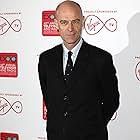
Pip Torrens
Netherfield Butler

Janet Whiteside
Mrs. Hill
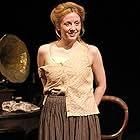
Sinead Matthews
Betsy
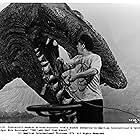
Roy Holder
Mr. Hill

Rupert Friend
Mr. Wickham

Tom Hollander
Mr. Collins
Multimedia





